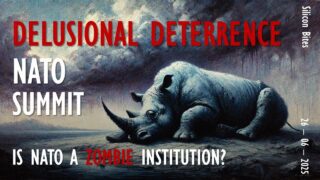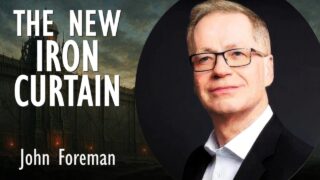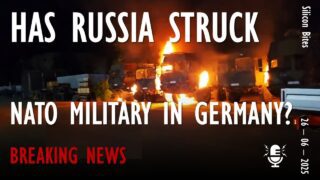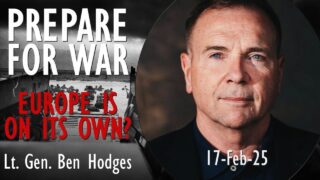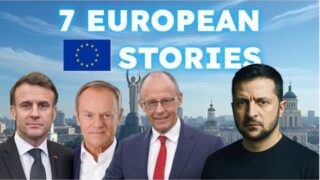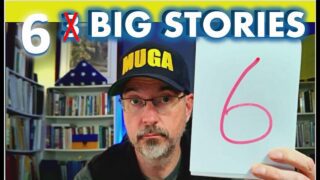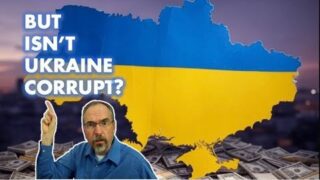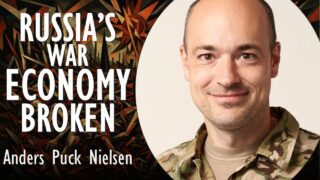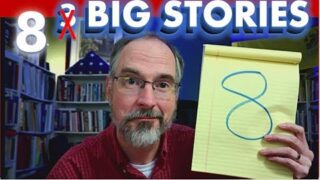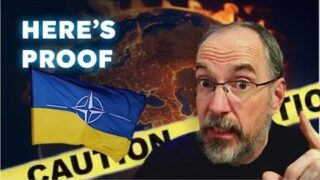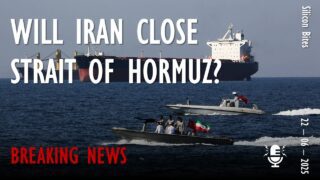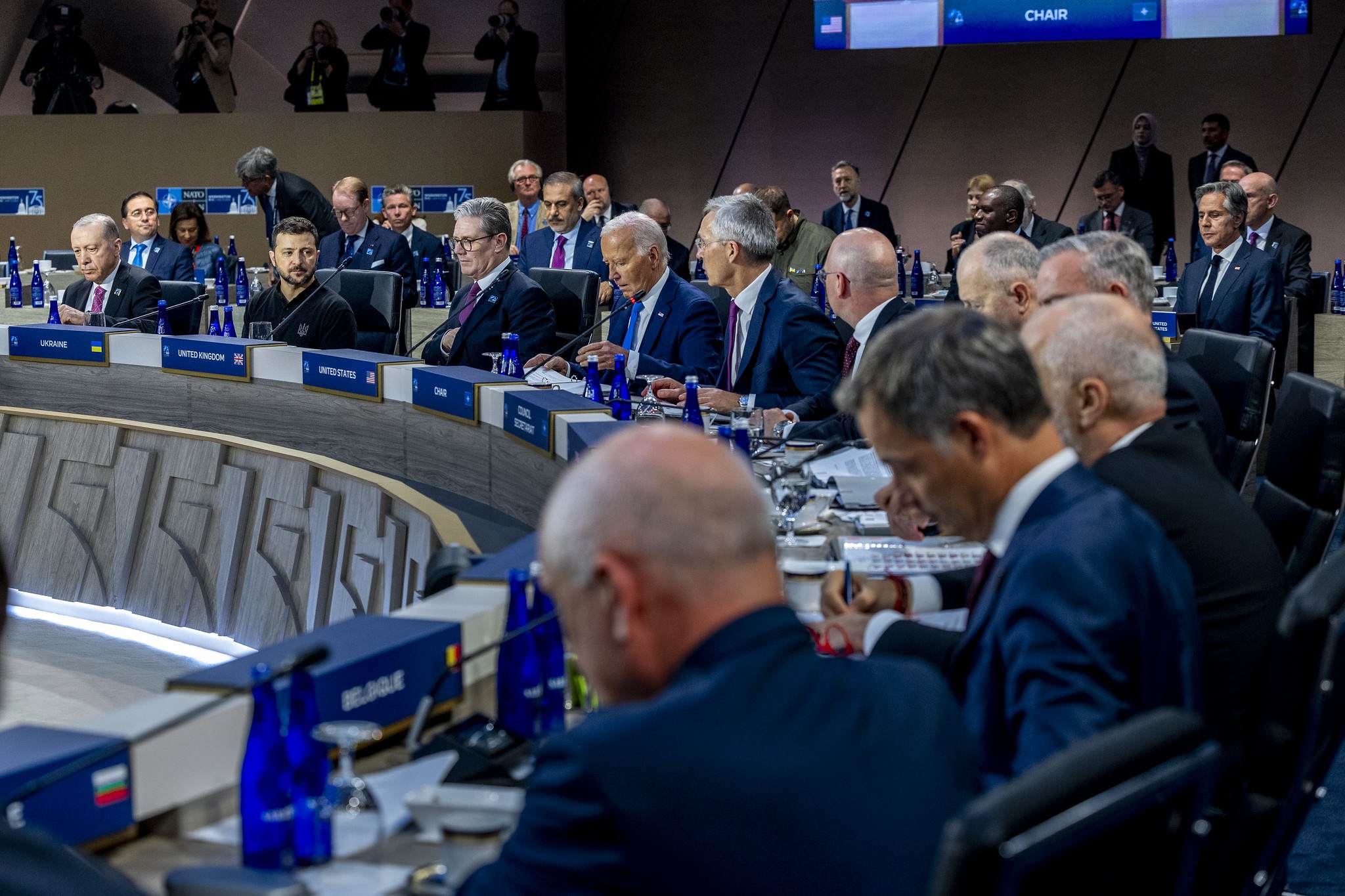
Nuclear weapons better than NATO, Ukrainians now think: poll reveals dramatic shift
A comprehensive survey by the New Europe Center reveals that Ukrainians increasingly favor developing nuclear weapons over NATO membership as their best security guarantee, highlighting a dramatic shift in how the war-torn nation views its defense options.
The November 2024 poll “Foreign policy and security. Opinions of Ukrainian Society” reveals that 31.3% of Ukrainians now view developing nuclear weapons as their best security guarantee, slightly ahead of NATO membership at 29.3%.
Conducted in November 2024, it marks a significant shift in Ukrainian public opinion about security arrangements and international partnerships amid the ongoing war.
Last years’ poll saw slightly higher support for NATO membership as a security guarantee, 32.6%, and much higher trust in potential security arrangements with the USA (21.2% for a defense alliance with the USA, 19.2% for a treaty with the USA on security assistance, and 12.3% for deployment of US troops on Ukrainian territory).
This year’s answer reflects Ukrainians’ growing gravitation towards self-reliance as the best policy after witnessing Western hand-wringing, along with uncertainty over Ukraine’s NATO bid and debates about “Russian escalation” seen as restraining much-needed Western aid for Ukraine and leading to deadly hesitation.
A re-nuclearized Ukraine instead of NATO?
The idea of regaining its nuclear status is trending in Ukraine. Earlier in November, rumors circulated that Ukraine was working on creating a nuclear weapon, which were, however, denied by Ukraine’s foreign ministry.
The idea of giving Ukraine back its nukes even got a boost from leftwing philosopher Slavoj Žižek, who suggests a doctrine to counter Russia’s nuclear threats: providing nuclear weapons to independent countries under attack by nuclear states.
A sense of regret about the Budapest Memorandum, in which Ukraine gave up the third-largest nuclear arsenal in exchange for security assurances from the USA, UK, and Russia is in the air: it proved useless when Russia invaded.
French Ambassador Gaël Veyssière acknowledges this calculus: “it’s a logical thing.” He adds that the world should be interested in Ukraine’s victory for the sake of nuclear disarmament. If Russia wins, it would be a “victory of a nuclear country that decides to take pieces of its neighbors,” sending the signal to other countries that they should never follow in Ukraine’s footsteps of relinquishing its nuclear arsenal.
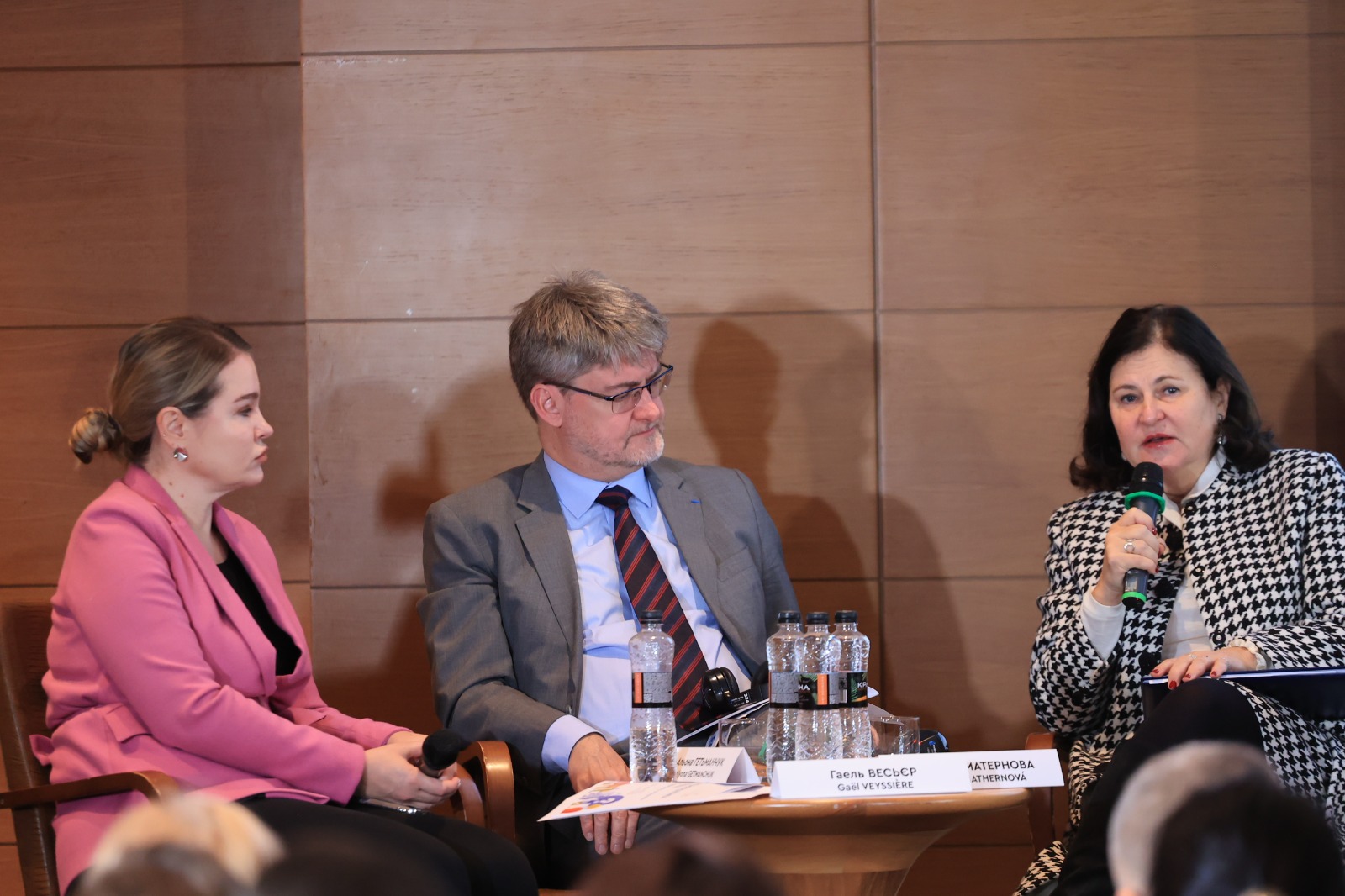
The survey reveals this nuclear preference coincides with falling trust in Western security commitments. US President Biden’s trust rating has dropped by 27 percentage points compared to last year. Instead of relying on international guarantees that failed in the past, a significant portion of Ukrainians appear to favor rebuilding independent nuclear deterrence capabilities.
However, Alyona Getmanchuk of the New Europe Center suggests this nuclear sentiment reflects “an element of disenchantment” that could decrease if NATO demonstrates a serious commitment to Ukrainian membership. She indicates that an “invitation to NATO would lead to dropping interest in developing nuclear weapons.”
Deputy Head of the Office of the President Ihor Zhovkva emphasizes that while “Ukraine’s membership in NATO is unreachable while Ukraine is at war,” the country has secured alternative guarantees by concluding 27 documents about security guarantees.
One of the most tangible outcomes of these documents is ensuring that amounts of aid to Ukraine from these countries do not fall below 2024 levels and that the aid will continue over the 10-year terms of the agreements, Zhovkva said.
However, recently, Ukraine has indicated the bilateral security agreements cannot replace NATO membership. A recent statement by the Ukrainian Foreign Ministry of Ukraine stresses that after the failed Budapest Memorandum, it will settle for nothing less than full NATO membership, suggesting that Kyiv views the bilateral agreements as a temporary solution.
Growing support for a controversial “German-style” partial NATO accession model
“The notion that NATO membership is the best security guarantee is correct. Sweden quickly came to the conclusion that existing in a gray zone between Russia and NATO had a high risk of being invaded. If it holds true for Sweden and Finland it holds true for Ukraine,” noted Swedish-American diplomat and analyst Fredrik Wesslau.
However, the challenge lies in getting Ukraine into NATO without going to war with Russia. An idea making rounds is a partial NATO membership scenario, in which Ukraine receives an invitation to NATO within its internationally recognized borders while Article 5 would be applied to the ones not currently occupied by Russia.
This is similar to the model offered to Germany post-World War II, when West Germany became part of the alliance in 1955, and East Germany gained this status only in 1990, after the reunification of Germany.
Ukraine, though, requires a slightly tweaked model: an invitation must be offered to the occupied regions as well, to not create an impression that Ukraine is giving up on liberating them.
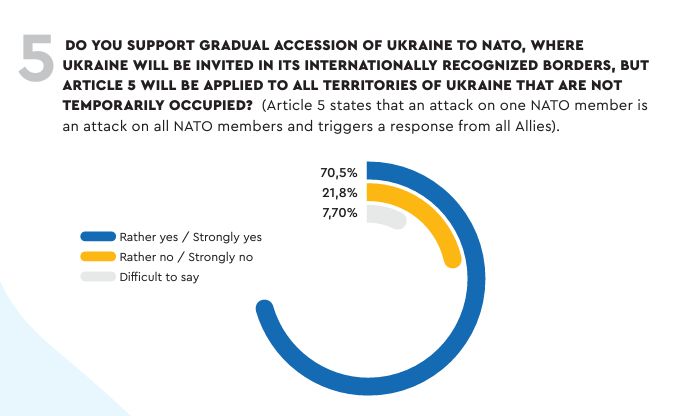
This idea was quite controversial in Ukraine in 2023 when it was first floated by former NATO Secretary Anders Fogh Rasmussen: critics feared it might legitimize Russia’s rule over occupied regions and challenge NATO credibility.
However, one year later, support for such gradual accession has grown, both in Ukraine and some diplomatic circles who fear that the invitation would allow the West a last chance to avoid losing the war amid the creeping Russian occupation of more and more land.
Now, an overwhelming 70.3% of Ukrainians support a gradual NATO accession model where Article 5 would initially apply only to unoccupied territories.
“Some allies fear Russian escalation over the invitation. Yet, an invitation does not mean legally binding security guarantees and will be a strong signal to Ukraine, and to Russia as well, that they don’t have a veto over Ukraine’s accession,” Wesslau says, adding that a serious accession process will strengthen Ukraine’s hand during any future negotiations with Russia.
Nevertheless, the model of gradual NATO accession has its controversies and is not universally supported by the expert community.
As European Pravda editor Serhiy Sydorenko noted, Ukraine will only receive a NATO invitation, even with partial application of Article 5, if it pledges to abandon attempts to regain Russian-held territories militarily.
This is unrealistic, critics assert.
- First, the decision to stop fighting for Ukrainians under occupation will have little support in society and the military.
- Second, prolonged occupation will have catastrophic consequences for the population, which will suffer from extreme human rights abuses and be Russified to the point of no return.
Post-WW2 Eastern Germany was in a dramatically different situation: the USSR had no goal of erasing German identity and absorbing them into Russia. In its expansion into Eastern Europe, the Soviet Union focused on creating aligned socialist states under Moscow’s control. Nevertheless, the deleterious consequences of this social experiment are still being felt in Germany today, with the East-West divide still cutting deep into Germany’s economic and social fabric.
Therefore, if Russia keeps occupying the southeastern part of Ukraine it currently controls as part of a “peace deal” floated in media outlets, the chances of Ukraine ever regaining these lands are uncertain.
Declining trust in Western leadership and a surprising hope for Trump
The poll shows a dramatic decline in trust for Western leaders, with US President Joe Biden‘s rating dropping 27% from last year, plummeting from first to sixth place. European Commission President Ursula von der Leyen maintains the highest trust rating at 65%, followed closely by Polish President Andrzej Duda and Canadian Prime Minister Justin Trudeau.
The survey also shows remarkably high trust in EU institutions at 69.2%. EU ambassador to Ukraine Katerina Mathernova attributes this to three factors: “It represents hope… Despite all odds, we delivered… The work of the Ukrainians over last 10 years: reformers, civil society, Rada; the heroism of the full-scale invasion resistance to which EU responded.”
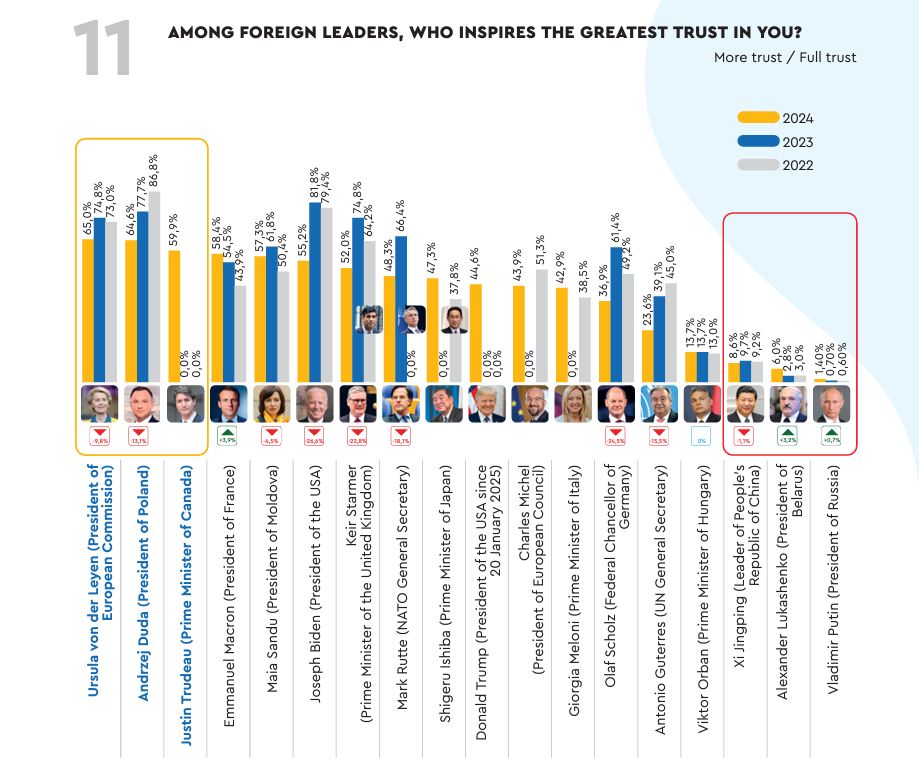
Surprisingly, despite Donald Trump’s controversial statements and his idea of a quick deal with Russia, the survey shows high trust ratings for the American president-elect among Ukrainians—44.6%, the highest in Europe.
Olena Halushka, board member at the International Center for Ukrainian Victory, explains this as a consequence of America’s “as long as it takes” escalation management approach:
“Ukrainians see it doesn’t work. It represents a high level of disappointment with the Biden administration.”
Wesslau adds that despite unease regardingTrump in Europe, some of his appointees, like Mike Walz and Keith Kellogg, are not bad for Ukraine – they understand the battleground and the idea of peace through strength.
Growing war weariness
The poll reveals a significant shift in Ukrainian attitudes toward potential concessions compared to 2023. While most Ukrainians still reject compromises with Russia, the numbers show a softening of previously hardline positions. The most dramatic change concerns territorial concessions – while 76.2% found them completely unacceptable in 2023, this number has dropped to 53.2% in 2024.
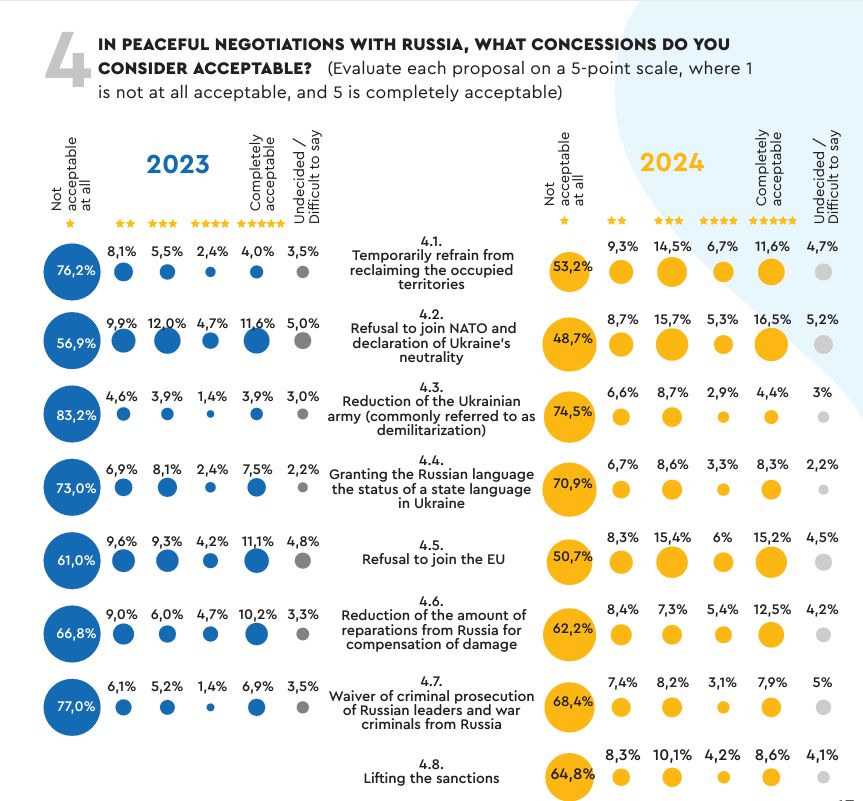
Similar trends appear across other potential compromises. Opposition to refusing NATO membership decreased from 56.9% to 48.7%, while those completely against EU membership concessions dropped from 61% to 50.7%. The number of Ukrainians entirely opposed to reducing Russian reparations fell from 66.8% to 62.2%.
This war fatigue is also reflected in attitudes toward negotiations.
While in 2023, 33.4% opposed talks with Russia under any circumstances, this number has dropped to just 12.1% in 2024. The percentage of Ukrainians willing to negotiate without preconditions has risen to 16%. The largest group (39.1%) would support talks if Russia withdraws to pre-February 2022 positions, while 26.2% would accept negotiations if Western security guarantees are provided.
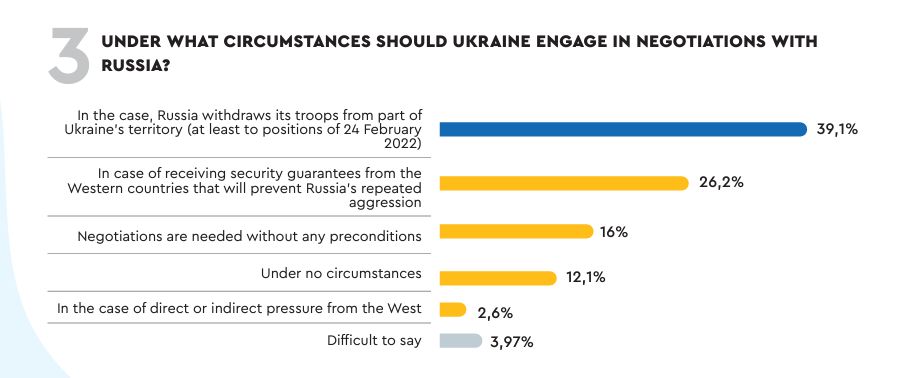
However, certain red lines remain firmly in place. The survey shows continued strong opposition to granting Russian language state status (70.9%) and reducing the Ukrainian army (74.5%).
The paradoxical anti-corruption fight
The survey has highlighted a trend of Ukrainians’ rising skepticism towards Western criticism of corruption in Ukraine: approval of Western pressure for reforms has dropped to 63%.
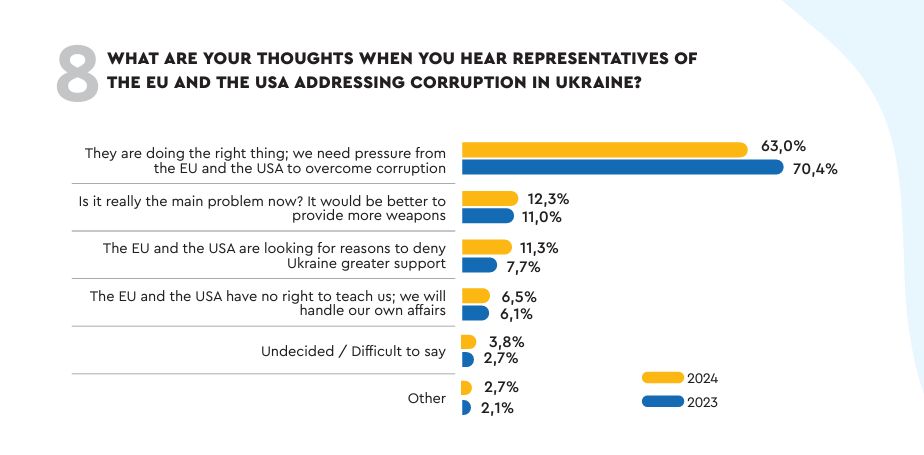
Olena Halushka, who is also a board member at the Anti-Corruption Action Center, a leading reforms NGO, explains this rising disapproval by a paradoxical feedback loop:
western support for reforms → more exposure of corruption → creates impression that Ukraine is very corrupt → used as a pretext for withholding aid from Ukraine.
“The anti-corruption sentiments are caused by the last NATO summit declaring that Ukraine will not receive an invitation because it is corrupt. This undermines our anti-corruption work, the work of anti-corruption activists and journalists, when this diagnostics process becomes attached to invitations,” Halushka stresses.
She argues that “Ukraine’s non-invitation to NATO is caused by a fear of Russia” rather than corruption concerns.
Military support and economic measures
French Ambassador Veyssière acknowledges limitations in European support: “We can pay more, but there are things where we can’t substitute. Patriots are not supplied. Scalps and Storm Shadows are not in the capacity we need.” He emphasizes that “there should be no red lines on our side. It is important to take risks in public opinion.”
There is one red line that cannot be crossed, Halushka argues: sanctions against Russia cannot be lifted, as this will lead to the return of $300 billion in frozen Russian assets. Currently partially used for purchasing weapons and repaying a $50 bn loan, they could be fully used for Ukraine’s reconstruction, potentially generating $15-20 billion annually through high-return investments.
As Russia’s military budget for 2024 stands at $124 billion, the return of this $ 300 bn will spell catastrophic consequences for Ukraine.
The survey, conducted among 1,000 respondents across Ukraine (excluding occupied territories), provides a comprehensive picture of Ukrainian attitudes toward security arrangements and international partnerships at a critical moment in the country’s history. With a margin of error not exceeding 3.1%, it reveals a population that remains committed to Western integration while growing increasingly pragmatic about security guarantees.
[Note: The poll was conducted by INFO SAPIENS LLC on behalf of the New Europe Center from 15 November to 27 November 2024]
Related:



